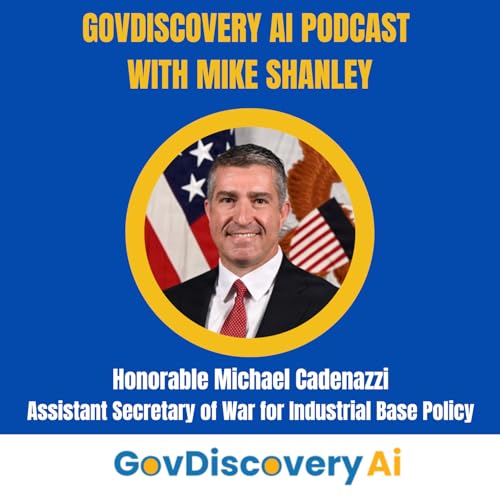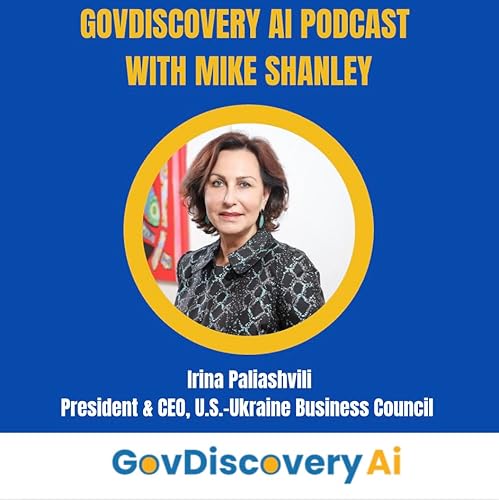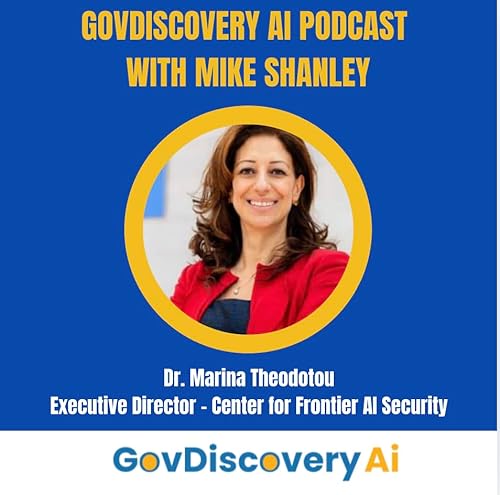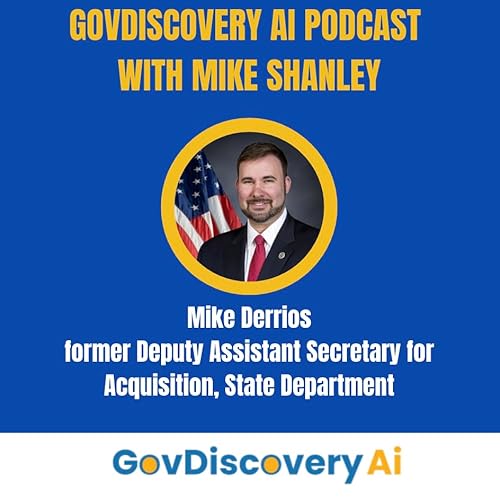In this episode, host Mike Shanley sits down with Major General Thad Bibb (Ret.), former Commander of the 18th Air Force and now VP of Defense Business Development at Radia.
They discuss Radia's WindRunner™, the world's largest aircraft by volume, how it emerged from commercial wind-energy needs, and why its logistics capacity could redefine modern warfare, allied readiness, and dual-use innovation.
General Bibb shares insights from 33 years in the Air Force, lessons in defense acquisition, and practical advice for defense tech companies entering the market.
RESOURCES:
Radia (WindRunner Aircraft) - https://radia.com
BIOGRAPHY:
Thad is an innovative leader, passionate about bringing unique solutions to complex problems. In 2024, he retired from the Air Force as a Major General with over 33 years of service. As a command pilot with over 5,000 flight hours, Thad led operations around the world, from gravel strips in Alaska to combat zones in Afghanistan and Iraq. As Commander of 18th Air Force, he led 36,000 Airmen, conducting all Air Force active duty airlift, air refueling and aeromedical evacuation missions. As Commander, 618th Air Operations Center, his team planned, tasked, executed and assessed operations for a global fleet of 1,100 aircraft. Managing budgets of over $320B dollars, Thad also served as a leader in Air Force Materiel Command, where his teams led strategy, budget and operations efforts for all Air Force Research, Test, Acquisitions and Sustainment programs.
In 2025, Thad joined Radia, bringing his skills to bear on energy security and logistics for the defense of the United States and its allies. Radia is building a unique aerial transportation solution, WindRunner™, to enable the movement of the largest cargo to the hardest to reach places. Addressing a global deficit of outsized airlift, WindRunner will provide new solutions for Defense, onshore wind energy and outsized commercial cargo. When delivered in 2030, WindRunner will be the largest aircraft in the world.
Thad earned a Bachelor's Degree in Engineering Mechanics from the USAF Academy and a Master's Degree in Aeronautical Engineering from the Air Force Institute of Technology. He is also an Ancien of the NATO Defense College in Rome, Italy. Thad enjoys spending free time with his family traveling, skiing at the lake or in the mountains, and flying his grandfather's 1967 Mooney.
LEARN MORE:
GovDiscovery AI provides defense market intelligence, early demand signal tracking, and business development support for companies entering or expanding in the defense sector.
Subscribe for:
- Weekly interviews with industry leaders
- Defense market analysis
- GovTech + defense innovation insights
Thank you for tuning into this episode of the GovDiscovery AI Podcast with Mike Shanley. You can learn more about working with the U.S. Government by visiting our homepage: Konektid International and GovDiscovery AI. To connect with our team directly, message the host Mike Shanley on LinkedIn.
https://www.govdiscoveryai.com/
 40 m
40 m 33 m
33 m Dec 12 202530 m
Dec 12 202530 m Dec 2 202531 m
Dec 2 202531 m 41 m
41 m 28 m
28 m 25 m
25 m Nov 7 202551 m
Nov 7 202551 m
